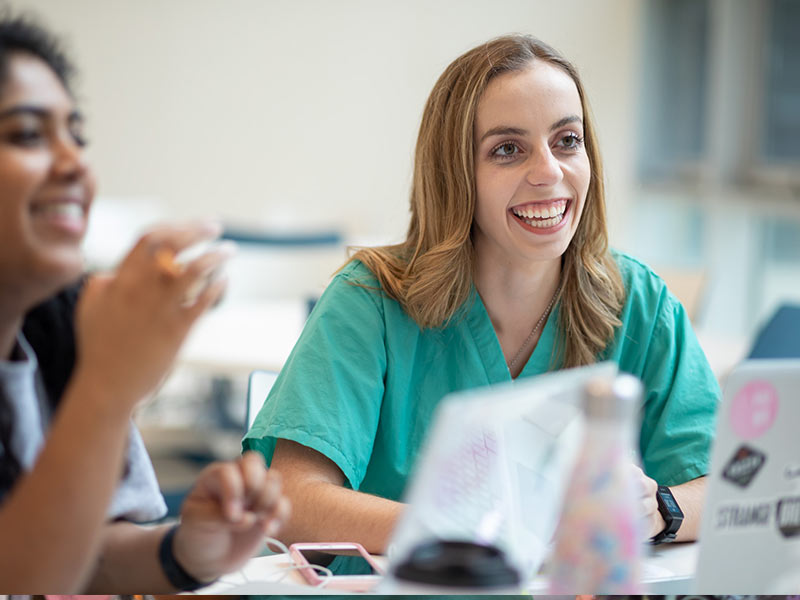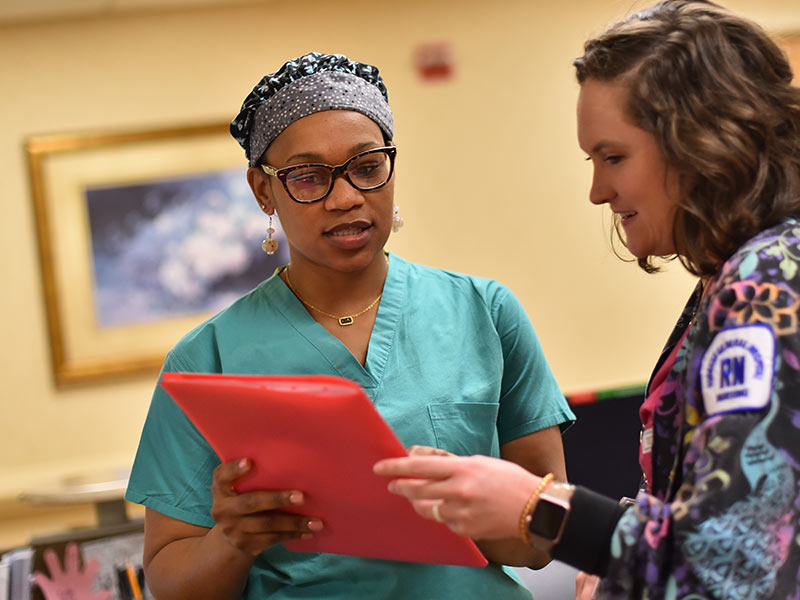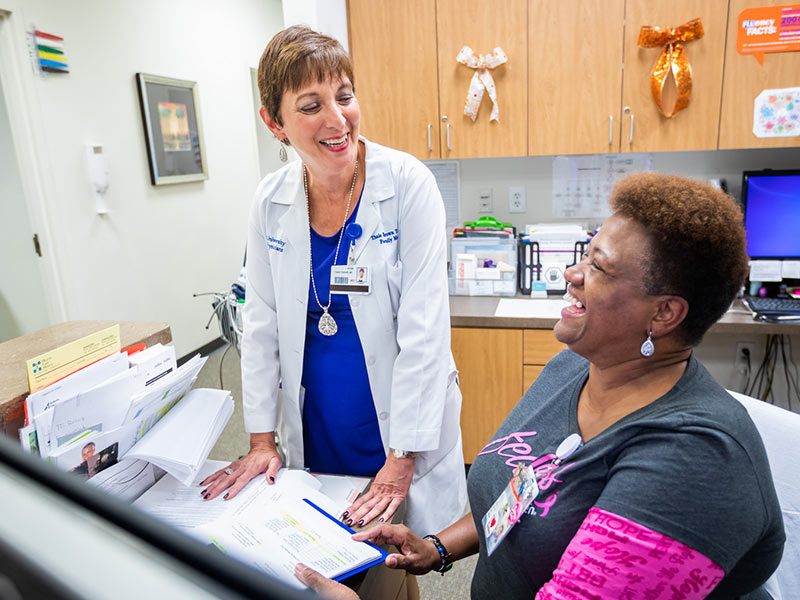Anatomy of a survey: As ‘Grey’s’ turns 15, medicos dissect TV shows
“City Hospital,” considered the first TV medical drama, made its debut in 1951 alongside “I Love Lucy” which had nothing to do with medicine, unless laughter counts.
In contrast with “I Love Lucy” which, thanks to reruns, will outlast the glaciers, “City Hospital” disappeared after a couple of seasons – yet the Big Idea behind it remains infectious as its heirs continue to thrive, including future-challenged “Grey’s Anatomy” with Ellen Pompeo as Dr. Meredith Grey.
“I dressed up as Meredith Grey for a Halloween party during college,” said Jessica Williams of Ocean Springs “And watching [Dr. Amelia Shepherd] at work on the show inspired me before I became a medical student.”

If anyone is qualified to say how, or if M.G. the M.D. and other make-believe doctors are making an impact on the real-life medical profession, it’s those who are in it, and those who will be, such as Williams, a first-year student in the School of Medicine at the University of Mississippi Medical Center.
To that purpose, more than 200 medical students and residents took a survey asking them to name their preferred medical series (or if they have one), and whether it affected in any way their decision to become a physician.
“No. They are all stupid. At least ‘Scrubs’ was funny,” replied one responder.
“We do not have TV,” declared another.
“I saw an episode in which Meredith [Grey] kisses a male patient while she is wearing a contact precaution gown,” shared a third, “and I wondered if the guy had C. diff.”
TRAPPER JOHN, M … WHO?
Yes, some students and physicians do not take medical dramas seriously; but others do, including Dr. Jaleen Sims, who was once absorbed by the late, great “Night Shift.”
“It reminded me of some of our late-night, high-intensity moments we see on labor and delivery, in Women’s Urgent Care or on my rotation at the Adult Emergency Department,” said Sims, a fourth-year resident in obstetrics and gynecology at UMMC.

By the way, based on Google Trends data, Mississippi’s favorite “medical-themed” series is the “M*A*S*H*” spinoff “Trapper John, M.D.”— the choice of absolutely no resident or student whose survey answers were tallied.
Among the Googled states, “The Night Shift” placed third in popularity, behind “House” and “ER.”
“The story lines and social situations [on ‘The Night Shift’] were very true,” Sims said. But those lovers’ spats in the OR with all those tempting scalpels alarmingly at hand? Not so much, Sims said.
“I suppose those types of discussions happen somewhere in the world. I’ve just never seen it.
“All in all, the [medical] shows never helped with decision-making or motivated me. I don’t watch them enough. I’m more of a law-and-detective-show girl.”
Williams, the medical student who once channeled Meredith Grey, also referenced the genre’s realism, or lack thereof: “When we were learning to use a stethoscope in class, we were told they do it wrong on TV.”
TV doctors tend to put the angled earpieces in backward, with the tips pointing away from the bridge of the nose. Sad, when you consider they could just look it up on YouTube.
Also sad, in a different way: “TV doctors spend way more time with patients than actual doctors could ever imagine spending with their patients,” one survey-taker said. “It's not that we don't want to, but we have other obligations and capable nurses and techs doing a lot of the work we see TV doctors do.
“Also, it seems as if TV doctors settle down much later in life than do medical students and residents in real life.”
At their best, as one of the respondents pointed out, some of the shows provide “an educational experience for patients” and invaluable resources such as suicide hotline numbers.
“We talk about today’s shows being unrealistic, but in the old shows, the patients always lived,” said Dr. Thais Tonore, a UMMC professor of family medicine who has been practicing for 40 years.
That doesn’t mean she wasn’t a fan of “Ben Casey,” “Dr. Kildare” and “Marcus Welby, M.D.” – terminally sincere shows that ran or began in the ’60s. Tonore got a kick from “Ben Casey’s” opening credit sequence with its low-angle shot of a sheet-covered gurney bursting into view.
“I loved it when the music started and they would hit those automatic doors,” she said. “And the doctors on those old shows could take care of everything, from a rash to brain surgery.
“But I like Hallmark movies now; they make life look better.”

‘RESIDENT’ EVIL?
True, life can look pretty grim in the various worlds of make-believe nurses and doctors. But in some of those worlds, such as “Scrubs,” jokes are cracked about as often as bones.
Among physicians and medical students, some of these worlds have been sources of career-inspiring drama, or craw-sticking frustration. Following is a run-down of their views; if you don’t like them, you can always get a second opinion. And a third.
Based on 215 responses, 75 percent of the survey-takers have seen “Grey’s Anatomy.” But their favorite medical TV series is “Scrubs,” with a plurality of 59 votes; that’s 27 percent of the total responses, but 37 percent of the number listing a preference.
“Scrubs” was also No. 1 as the favorite series that influenced or reinforced decisions to pursue a medical career (32 votes, or 31 percent of those who named a favorite).
Many mentioned it as the most authentic series:
- “Other than the fact that it’s a comedy, the bones of [‘Scrubs’] were an accurate portrayal of life as a medical trainee.”
- “I love how ‘Scrubs’ shows the dirty side of all the social barriers we face with most of our patients.”
- “‘Scrubs,’ may be a comedy, but watching it during high school did influence my decision to go into medicine. I enjoyed how many learning moments the fictional physicians of Sacred Heart Hospital enjoyed. It led me to pursue medicine early because I thought having a career where I can constantly learn and evolve as a person would be fulfilling.”
“Grey’s Anatomy,” with 44 total votes, is the survey’s second-favorite series overall, but it fell to third, behind “Scrubs” and “House, M.D.” as the pick that also influenced career choices.
Thoughts on both:
“A career in medicine was something I wanted before watching [‘Grey’s’] … . In a way, I started watching it because I wanted a career in medicine.”
“[‘Grey’s’] has driven me to want to not only become a doctor, but also to become a surgeon and save lives, despite the hard work and harder ‘family life’ that may come along with it.”
“The medical perspective of ‘House’ was almost always spot-on. There are a couple of disease courses that I was familiar with prior to medical school just because of that show.”
“‘House’ is not realistic at all.”
Not surprisingly, the diagnoses diverge. Maybe a bit more surprising is the No. 4 choice for favorite show that also influenced career decisions, a series that coded back in 2009, when some of the students were in middle school: “ER.”
“‘ER’ is a very authentic medical show for its time,” was one person’s take. “This is probably due to the fact that a physician [Michael Crichton] wrote the show … .” Crichton also wrote “Jurassic Park.”
Another 20 or so series received at least one vote, including the “Grey’s” spinoff “Private Practice,” “Chicago Med,” “Boston Med,” “Untold Stories of the ER,” “Life in the ER,” “The Good Doctor,” “Everwood,” “Code Black,” “The Resident,” “New Amsterdam,” “Dr. Quinn, Medicine Woman,” “Getting On,” “Royal Pains,” “M*A*S*H*,” “Bones,” and “Botched.”
Among the more discombobulating nominees were “Korean medical dramas” and “Lost.” Instead of a TV show, one person credited “my family member.” Someone else voted – perhaps ironically – for “Sex Sent Me to the ER.”
Although it has some admirers, “The Resident” may want to take out malpractice insurance, based on these responses:
- “Some shows are so unrealistic that I just can't tolerate them. ‘The Resident’ would be one of those shows.”
- “After realizing that most of the shows are purely for entertainment and not for accuracy (i.e., ‘The Resident’) I have come to appreciate the shows a little more.”
- “Sometimes these shows make us look bad, especially … ‘The Resident.’ They make hospitals look like evil corporations. …”
- “Can’t stand the way ‘The Resident’ portrays a negative view of medicine. I think it’s an awful show in a time when people already have doubts about their physician.”
GREY AREA
Some of those who sliced up “Grey’s Anatomy” sounded reluctant to sew it back up:
- “Lots of patients ask me if the show is accurate, often referring to scandalous activities that happen in closets and call rooms, etc. At least for me, the answer has been ‘no.’”
- “I hate the way it portrays female physicians.”
- “‘Grey’s’ … has given a false concept of what residents do and how we are trained.”
- “‘Game of Thrones’ is better.”
- “They never had to type notes!”
To paraphrase Jules in “Pulp Fiction,” allow these to retort:
- “I really like the representation of women and minorities in ‘Grey's.’”
- “Meredith Grey and Cristina Yang [portrayed by Sandra Oh] are my role models!”
- “In the real life setting of a hospital, physicians are rarely seen, are expected to be perfect, and are, frankly, intimidating at times. Shows like ‘Grey’s’ allow the audience to see doctors as people … who make mistakes and have a life outside of work just like everyone else.”
- “When I watch ‘Grey’s,’ I feel like someone gets my life as a surgical resident.”
- “It makes you feel not so alone when you see the characters dealing with being tired, overworked, having troubles in relationships, losing a patient, etc. I wouldn’t say this show inspired me to go into medicine; I wanted to be a doctor since I was little. But the show helps you get through the bad times … .”
- “Best show ever. Going to be clinically depressed if it ends.”
Finally, here’s one judgment that could be interpreted either way: “She does the dirty with a ghost …, and I can't think of a better reason to go into medicine than that.”
Fortunately, most people can.
SURVEY: “Grey's Anatomy”/Medical TV Shows
- Are you a medical student or resident?
- What is your year of study (M1, M2, etc.) or year of residency?
- Do you watch, or have you ever watched, the TV series “Grey’s Anatomy”?
- Did watching “Grey’s Anatomy” in any way affect your decision to pursue a career in medicine?
- Do you have a favorite TV series featuring physicians (including reality shows and soap operas) or other health care providers and did it influence your decision to pursue a career in medicine?
- If so please list it, or them.
- Assuming that you have time to watch TV, has your opinion of the shows you watch or used to watch changed since you began your medical studies or career?
- How realistic to you find these TV series in general – do they tend to be very authentic, fairly authentic, rarely authentic or not authentic at all?
- Please add any comments you would like to share about “Grey’s Anatomy” or any other series.


